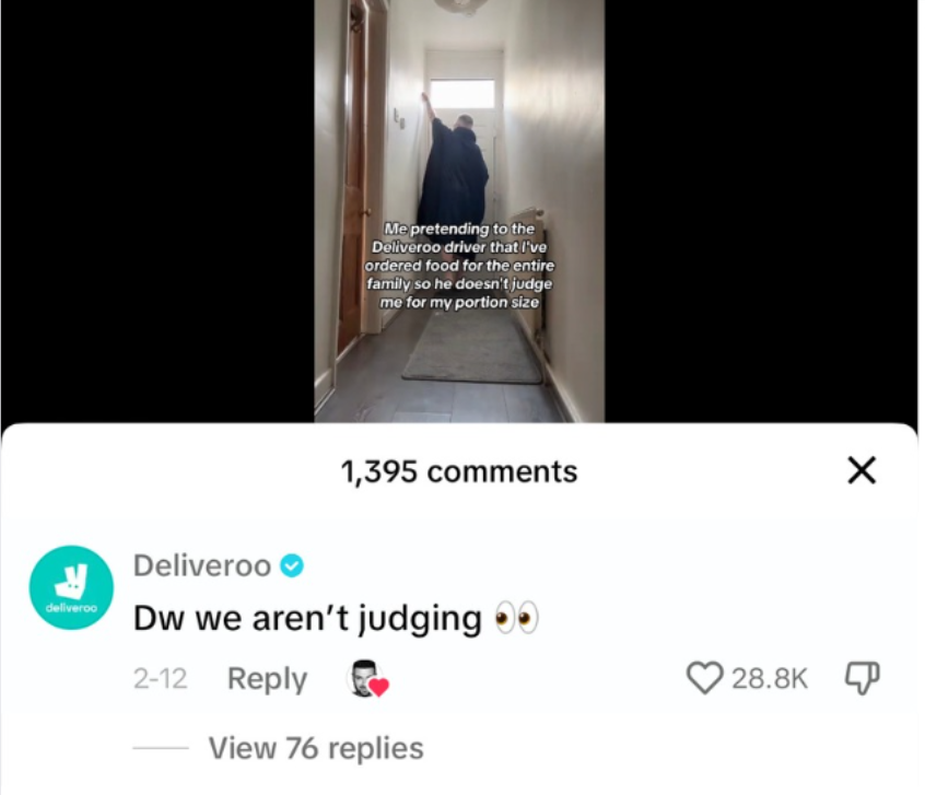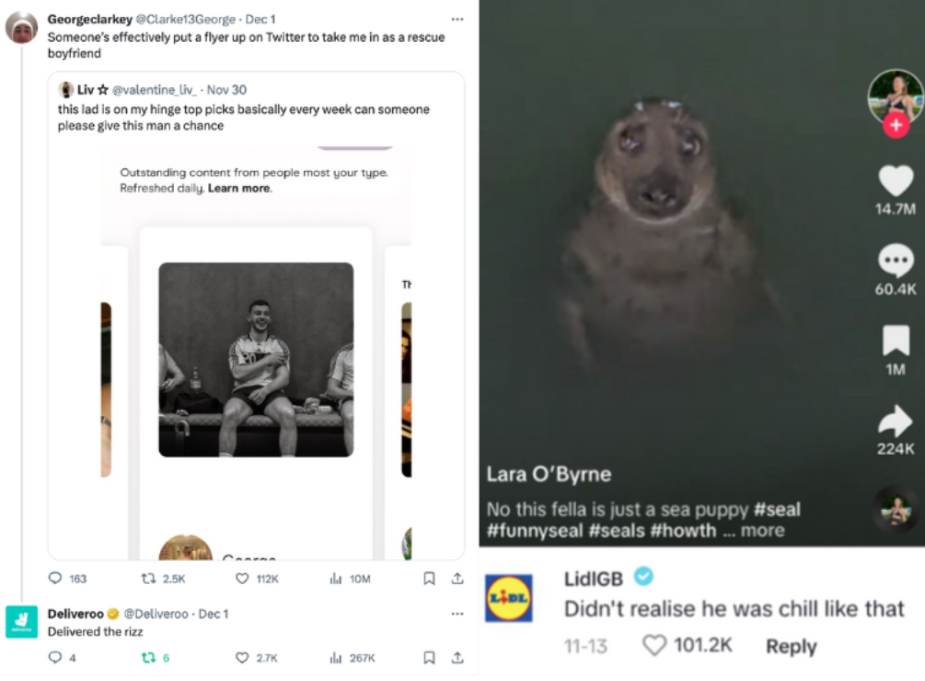
Social Butterflies: Mark Shpungin on Storytelling Before Selling

Mark Shpungin is a senior social strategist at Coolr. Having been in the industry since 2017, Mark develops and optimises strategies across Coolr's wide portfolio of clients, including Lidl, Burger King and Samsung. He's passionate about brands, consumers, culture, and how they shape social media.
LBB> What’s the most significant development or trend shaping the social space right now?
Mark> Brands are rediscovering their roots and are tapping into their distinction.
We’ve reached a point where the landscape is so saturated with sponsored content, brands are struggling to stay ‘different’ for too long. Once one brand jumps on a trend, the rest follow suit, and you end up with a sea of homogenous messaging where no one stands out or is memorable in the long run.
When differentiation doesn’t go far, you must be distinct. I think the biggest shift we’re seeing in a post-‘silence, brand’ era is brands going back to their roots and re-discovering their distinctiveness. The holy grail is developing a unique formula of content that makes your brand instantly recognisable, while giving a reason for your audience to care about what you have to say.
At Coolr, we’ve seen incredible success with Burger King when we’ve adopted a human tone of voice on Twitter and were among the first agencies to launch a major brand on TikTok. In the years since though, it seems that every brand is funny and is on TikTok. What helped us remain relevant is consistency in our reactive approach.
People now know to expect a jab from BK whenever McDonald’s is experiencing trouble, or a play-along with NUFC fans. Massive kudos to the client for continually trusting our editorial team to speak on behalf of the brand!
Another example is the work we do on Lidl. Retail is a very tricky industry to crack – every retailer is jumping on big seasonal moments and tends to lean into very functional messaging. Retail doesn’t have to be boring though. We’ve realised that social has to mimic the experience of shopping at Lidl.
You might go in for milk and eggs, but you’re likely coming out with a chainsaw and a £39.99 inflatable kayak that you’ve found in the middle aisle. There’s unexpected joy in that moment, and that’s precisely what we do with our social content – you never quite know what you’re going to get, but you know it’s going to make your day!
LBB> Every platform functions so differently - and the way they function evolves over time and there’s a lot of fun to be had on social, from shoppable livestreams to AI filters - so where are you finding the most satisfying or exciting creative opportunities right now?
Mark> I think we’ll continue to see functionalities converge. By now, it seems every app has its version of Stories, and you can make calls on Twitter/X now?! TikTok is reportedly working on a photo-sharing app, too.
What’s going to continue to set platforms apart though are use cases and communities – each one has its own unique meta and tonal nuances.
Twitter, traditionally known for quick, reactive engagement, has faced challenges lately, to put it lightly. Fast social now thrives in comment sections, and it’s happening across all platforms. This shift prompts marketers to seek opportunities beyond their immediate community. Here are some 'slappers’, as my GenZ colleagues on the editorial team would say:


LBB> What does ‘craft’ mean to you in a social context?
Mark> I feel there are so many sides to this. First, there is reactive. True craft here lies not only in knowing when to respond but knowing when not to respond at all. When you do, it’s better to get something good out now than wait for perfection to the point when it’s too late.
There’s a delicate balance in exercising restraint and being decisive other times when the opportunity to contribute meaningfully to the cultural discourse presents itself.
Another side to this is the overarching strategy. It requires skill to maintain a long-term focus in a medium that traditionally prioritises short-term gains. Platforms change, algorithms change, so do the tactics – but the story you’re trying to tell should always remain at the core of what you do.
LBB> Organic, paid, influencers, social search - how do you approach figuring out the best way to reach audiences?
Mark> The vast majority of people go on social to be entertained, fill spare time, and look for inspiration. This can be achieved through multiple touchpoints, so ideally, you’d have an integrated approach. Typically, we consider both push and pull strategies - pushing content to catch the eye of passive scrollers and pulling in the actively searching audience by optimising content for discovery. These should go hand in hand.
LBB> What are the biggest missteps you see brands making most regularly on social media?
Mark> Over-promotion has got to be up there. Brands need to realise that showing up on feeds is a privilege, and unless they’ve got something of value to add to the daily scroll, they’ll soon find themselves having a fatigued, unengaged audience. Story-tell before you sell.
It’s also very easy for marketers, especially in larger cities, to become blinded by bubbles (not the Powerpuff Girls character). I often see work that is fun and clever, but wonder if the actual target audience would truly care or if it’s simply marketing for marketers.
LBB> Inevitable AI question! How are you applying AI in your day-to-day role and what have been your key insights/observations about the best way to approach it in the campaigns you’ve worked on?
Mark> It's reassuring to realise that my job is safe (for now) from being taken over by AI. This is because it can’t distil a business problem down to a human problem, which is where strategy begins. It can still be very helpful along the way though - I use AI daily for a wide range of tasks.
From ghost-writing to helping me condense and structure information while I do my research, it has made me a more efficient strategist, but a cautious one as well. Sometimes I stress-test my ideas and insights by checking that AI doesn’t come up with similar ones. That’s when I know I’m on the right track.
LBB> Thinking longer term, where do you see the biggest risks and opportunities when it comes to AI in social?
Mark> What concerns me most is the rapid growth of image and video-based AI when media literacy is at an all-time low. In an environment where legal regulations cannot keep up with the advancements in this technology, I can see us being driven into ever-growing separation of echo-chambers, where nothing is true, and facts can be manipulated on an unprecedent scale.
LBB> When you’re not working, what social platforms and content do you personally enjoy engaging with and why? What creators, influencers and social communities do you really love?
Mark> I love regressing into complete goblin mode from time to time (daily) by going down some obscure YouTube rabbit hole. Sometimes it’s related to work, other times it’s a survey into unemployment rate in Skyrim.
LBB> What advice would you give to people who are looking to get into social, whether as creatives, strategists or producers?
Mark> Social can be too much at times. A good friend I used to work with would say ‘you win or learn’. That remains my daily mantra for staying resilient and humble. My advice would be to find yours - or feel free to adapt mine if it resonates with you!










